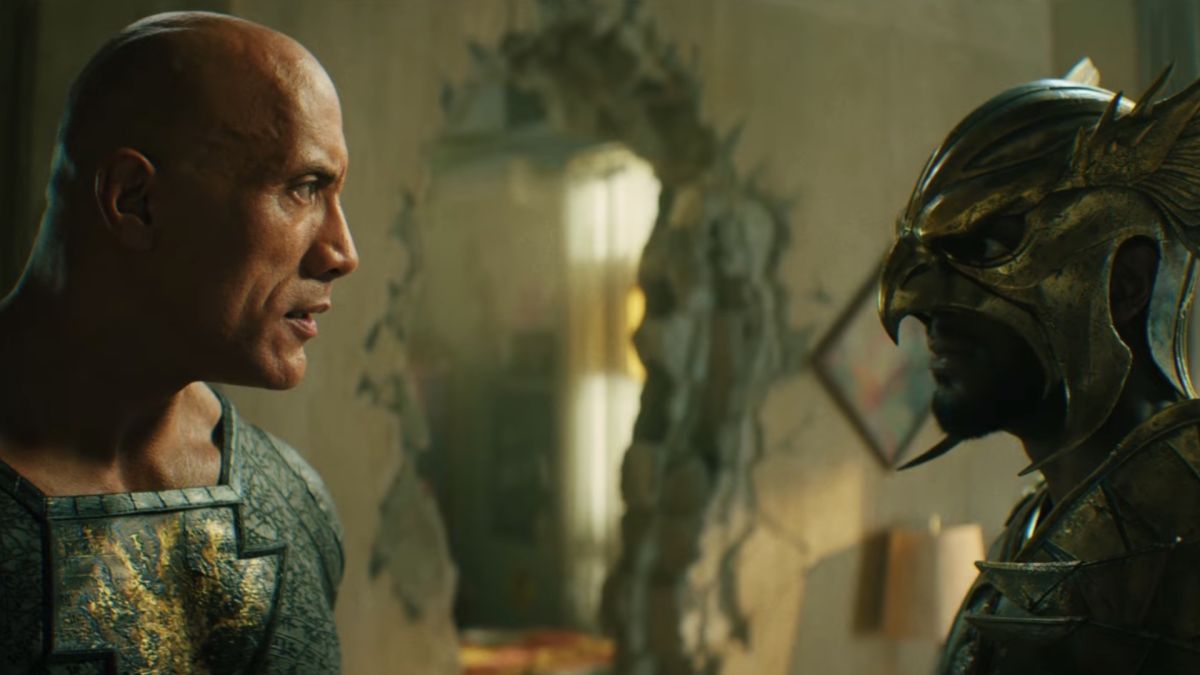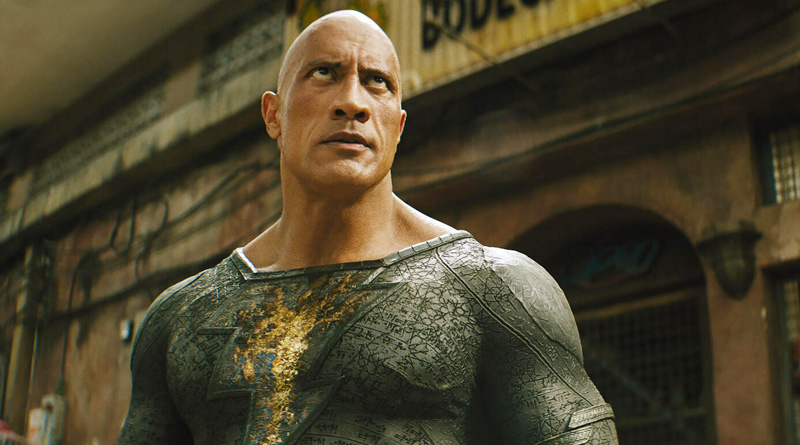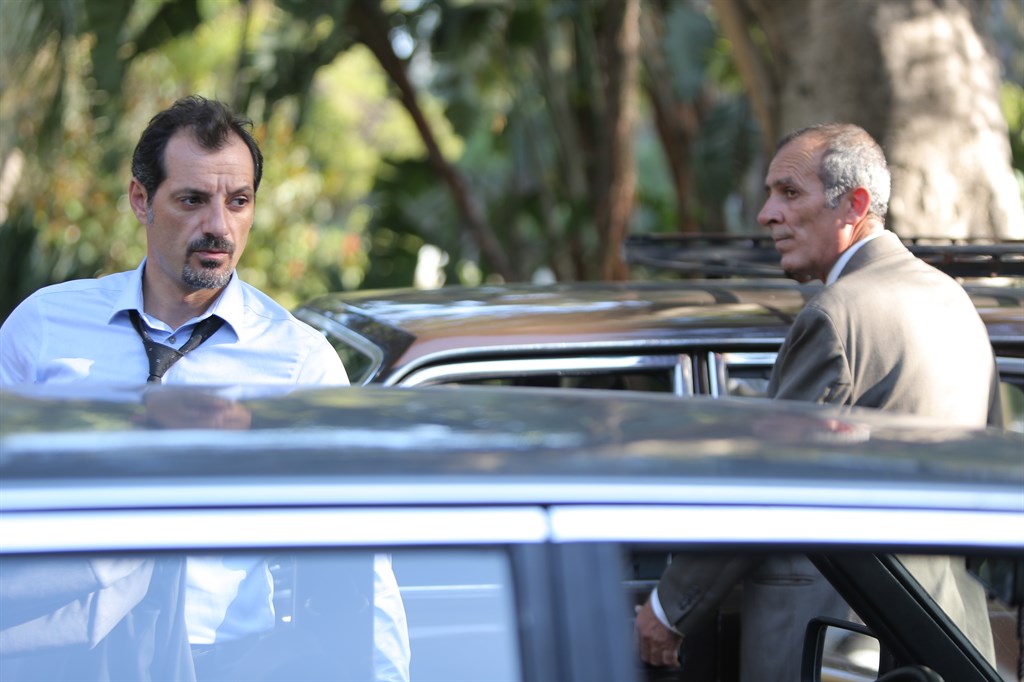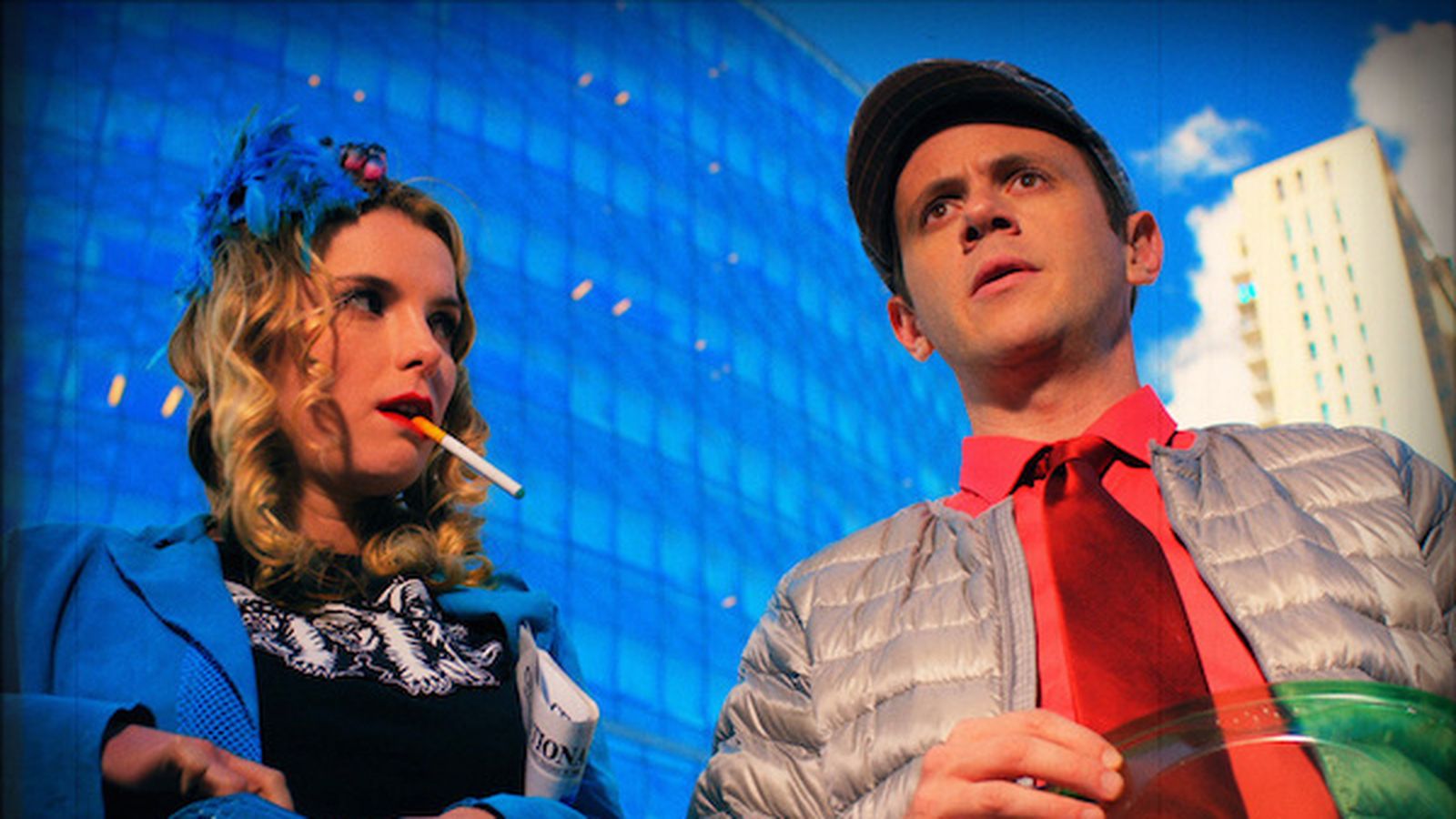There’s a thin line between what defines a hero and a villain — a theme that consistently comes up in Black Adam. The DC cinematic universe is already full of what we would think are stereotypical champions of justice. Even Batman and Superman have codes against killing and using guns. Dwayne Johnson’s character would probably smirk at those notions — maybe find them a little pathetic. Black Adam exists in this weird holding pattern of change as the DCEU tries redefining itself. The film very much feels like a continuance — especially cinematography-wise. Lawrence Sher uses many color grading techniques and action set piece slow-downs you would see in a Snyder-era film. Thus, Black Adam feels as though it’s living through fun, superhero spectacle and trying to establish a hearty meaning around rebellion and anti-imperialism. It’s a tall order when there are a lot of new characters to develop.
The film starts by telling the audience about the backstory of the fictional nation, Kahndaq. A greedy king has forced citizens to mine for a particular stone called Eternium. If he gets enough of it, the king can forge a crown, giving him access to demonic powers. However, a boy named Teth Adam rises from slavery and leads a rebellion. For his act of heroism, the same collection of wizards (led by a returning Djimon Hounsou) ordain him powers. As legend has it, Teth Adam single handily took down the king and his guard, but suddenly disappears.
Flash forward to present-day Kahndaq, and now, it’s under international occupation by the criminal enterprise, Intergang. The matter of whom possesses the crown is still an issue. So, professor/resistance fighter Adrianna (Sarah Shahi), her son, Amon (Bodhi Sabongui), and brother Karim (Mohammed Amer) are on the hunt to keep it out of nefarious hands. While on a mission, Adrianna recites an incantation and awakens Teth Adam (Dwayne Johnson) — much to the physical dismay of some Intergang agents. Director Jaume Collet-Serra sets the tail end of the first act to show off the anti-hero’s robust assortment of powers. Complete with a montage that includes the on-the-nose usage of The Rolling Stones ‘Paint It Black.’

Photo Credit: Warner Bros. Pictures
The writing team of Adam Sztykiel, Rory Haines, and Sohrab Noshirvani had a lot of work cut out for them because Black Adam has many components to serve. First, there’s the essence of what Black Adam means in a world devoted to looking at heroism in defined terms. Adam has no problem indiscriminately killing foes and using vengeance to get things done. For the long-oppressed people of Kahndaq, this is very much welcomed. He’s the liberator who comes to save them once again.
For the most part, Johnson plays things very straight — delivering his dialogue from a serious place. Amon, a lover of superhero lore, tries to break that. Amon informs Teth Adam that he needs a better name and a catchphrase to keep up with modern times. Sometimes, that “fish out of water” element works — especially during the unfortunate moments Johnson says his lines while doing the opposite. At other times, the comedy bumps up against the serious aspects of what Black Adam is trying to convey.
Another part of this film’s equation is the introduction of the Justice Society, called in by Suicide Squad boss Amanda Waller (Viola Davis) to get Teth Adam in check. Hawkman (Aldis Hodge), Doctor Fate (Pierce Brosnan), Cyclone (Quintessa Swindell), and Atom Smasher (Noah Centineo) come together to serve as better foils to Adam than the actual villain does. All four characters are brought here with the notion they have history. Hawkman and Dr. Fate have a long-established friendship, with Cyclone and Atom Smasher being the newcomers.
Much of the second act seeks to fortify the Justice Society’s plights about the overall story. It works best when they are directly going against Teth Adam. Aldis Hodge matches Johnson from action and charismatic capacity. Brosnan serves as the wise sorcerer that has a vision he has to figure out. Swindell and Centineo play off of each other, showing the youthful exuberance of being part of this team. Although, you wish they got more time to develop this further. Inside the massive CGI-action scenes are two warring trains of thought about what it means to be a hero. Black Adam is very heavy-handed in telling the audience Teth Adam is indeed not one. There’s a specific reason for his anti-hero nature — one that gets bogged down in the third act, that has so much going on.
Because the film elects to bombard you with the “wait, there’s more” approach; it lessens the impact of what could be a fascinating story. If kings can exert their power to horrifying means, where does that leave excessively powerful metahumans? Black Adam asks a good question, but cannot fully engage in what that means. We’ve seen DC films dealing with ancient heroes trying to live in modern society and even seen them have crises of morality. If the title character is so conflicted with his people’s cries and the massive weight of loss, there should be more instances to show it other than telling. You’ll almost want Black Adam only to pick a couple of things to realize what it could have been a complete film.
Photo Credit: Warner Bros Pictures













